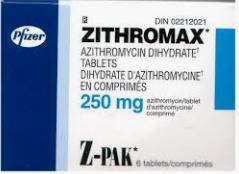
Does it make any sense to use an antibiotic like this?
- Your physician diagnoses you with a bacterial upper respiratory infection.
- He/she sends you off with a prescription for azithromycin (Zithromax)
- You pick up the prescription
- Then wait for five days.
- On Day 6 you take the first dose in the taxi on your way to the emergency room.
No, this would be crazy. But it's a pretty good approximation of how remdesivir is being used at present.
When I wrote about my disappointment over the first randomized controlled clinical trial results of remdesivir (See Remdesivir 1st Controlled Trial Is No Cause For Celebration) the silly exercise above wasn't that different from what I alluded to.
This is because remdesivir is administered only by IV and Gilead has stated that it has no plans to develop the drug in pill form. I don't think people fully appreciate how this diminishes the utility of the drug. An IV-only drug for COVID will have little or no impact on the pandemic; its use will be limited to hospitals or (maybe) infusion centers, neither of which is amenable to the widespread use of the drug. The result?
- Remdesivir will not do a thing to prevent the spread of the virus.
- Nor will do it do anything to allay fears, decrease the need for social distancing and masks, stop the infection of healthcare workers, or mitigate the massive disruption to our lives.
- We will still be faced with the impossible choice of saving lives or trying to rescue the crippled economy with little power to do either.
An IV-only drug virtually guarantees that only the sickest patients will benefit from the drug, which is precisely the wrong way to use an antiviral drug for an acute infection. Starting antiviral therapy late can be worse than doing the same with antibiotic treatment. This is because viral infections are fundamentally different.
A delay of an extra few days before starting Zithro may make you sicker but the drug will probably still work, even though you time of recovery will just be pushed back a bit. But with antiviral drugs for an acute infection, there is often a window (a rather small one) during which time the drug will be useful. After that time the window closes and the drug won't work well, maybe not at all.
For example, Tamiflu is marginally effective in reducing the duration of symptoms of influenza, but only when taken very early in the infection. After that, it is useless. Similarly, if acyclovir/Valtrex is taken within 48 hours of the first sign of a herpes outbreak (oral or genital) it will limit the severity of the lesions - maybe by a lot. But if the drug is taken a few days later it will be less helpful, perhaps not at all. The same holds true for famciclovir, which needs to be taken within 72 hours of the outbreak of shingles. Treatment with antivirals is more like an on-off switch, whereas with antibiotics or antifungals it's more like a dimmer.
It is too soon to know whether these three examples will apply to coronavirus, but it is reasonable to assume that they will. What we do know is that the virus mounts a massive attack on cells in the body, usually beginning in the lungs. This alone will make you good and sick. But it is the overreaction of our immune systems (the cytokine storm) and strange blot clotting that makes coronavirus such a unique killer. This is why it is critically important, especially in the absence of a vaccine, to treat the infection early when the illness is milder. A successful antiviral will decrease the amount of virus replicating in the body, which should limit damage to lung tissue, and blood, preventing the immune system from going berserk.
In other words, we really need a pill that will keep the virus under control so that even if people catch it COVID will (presumably) be more like a bad cold and less like a terrifying killer. But we don't have that pill.
Tomorrow: How such a pill could be made.



